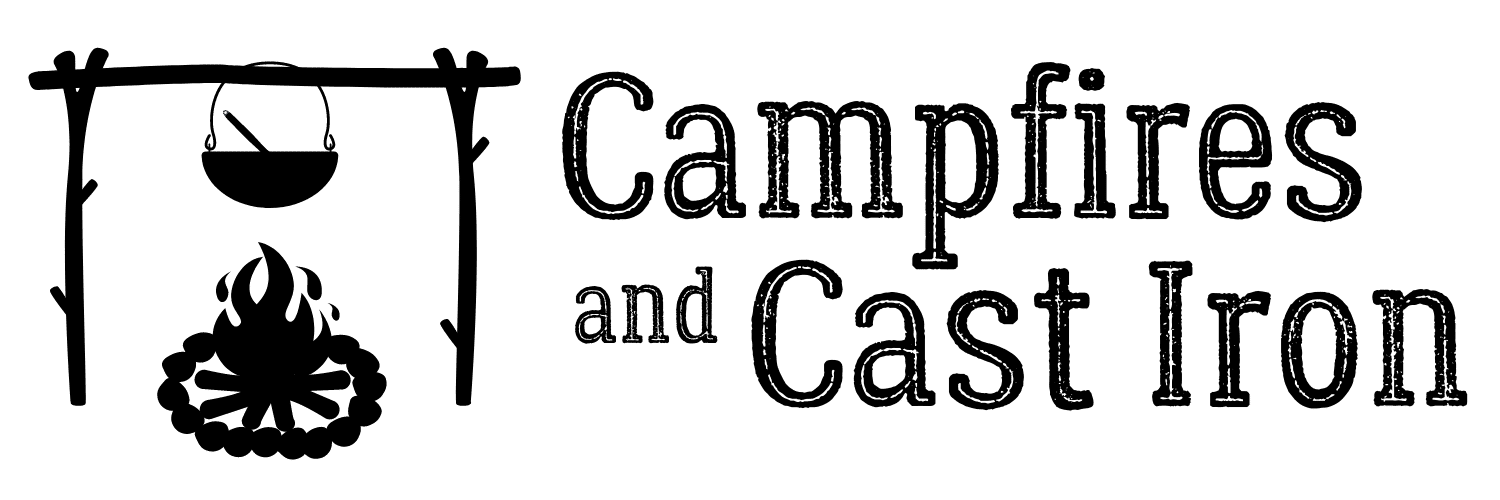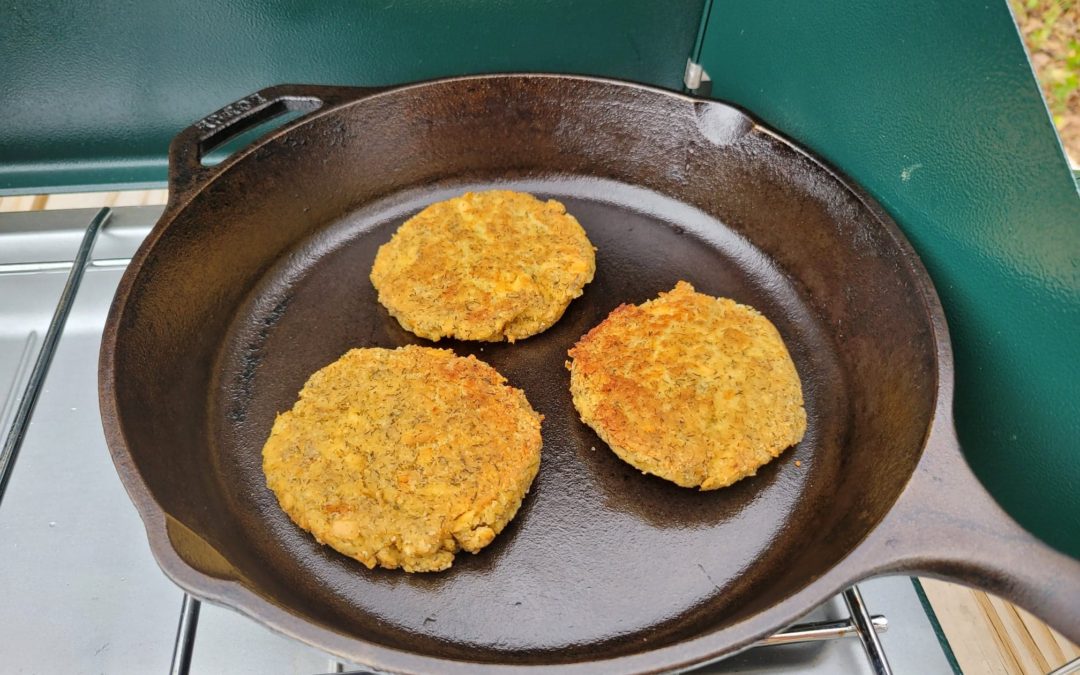These quick and easy camping stove salmon patties are crispy on the outside, tender and flaky on the inside, and seasoned with flavorful dill. This recipe only requires a few ingredients and makes a perfect camping dinner.
This recipe can also be made using a cast iron skillet on the grill, over a campfire, or indoors on the stovetop.
Equipment
- Camping Stove, Propane Fuel, Lighter
- Skillet (I used a 10″ cast iron skillet)
- Heat-Resistant Gloves
- Mixing bowl and spoon
- Spatula
- Paper Towels
Ingredients
- 3 5-oz Cans Salmon (boneless)
- 3 Large Eggs (beaten)
- 1 Cup Breadcrumbs (use gluten-free if needed, or substitute almond flour)
- 1½ TBSP Dill
- ½ TBSP Garlic Powder
- ¼ tsp Salt
- 1 Cup Oil for Frying (I use Avocado or Canola oil)
- Tartar Sauce (for serving, if desired)
Camping Stove Salmon Patties Cooking Instructions
Prepare At Home Before Camping:
1. Combine breadcrumbs (or almond flour), dill, garlic powder, and salt. Mix well and store in a ziplock bag.
2. Crack 3 eggs, beat well, and store in a leak-proof jar or container in the refrigerator or cooler for up to three days.
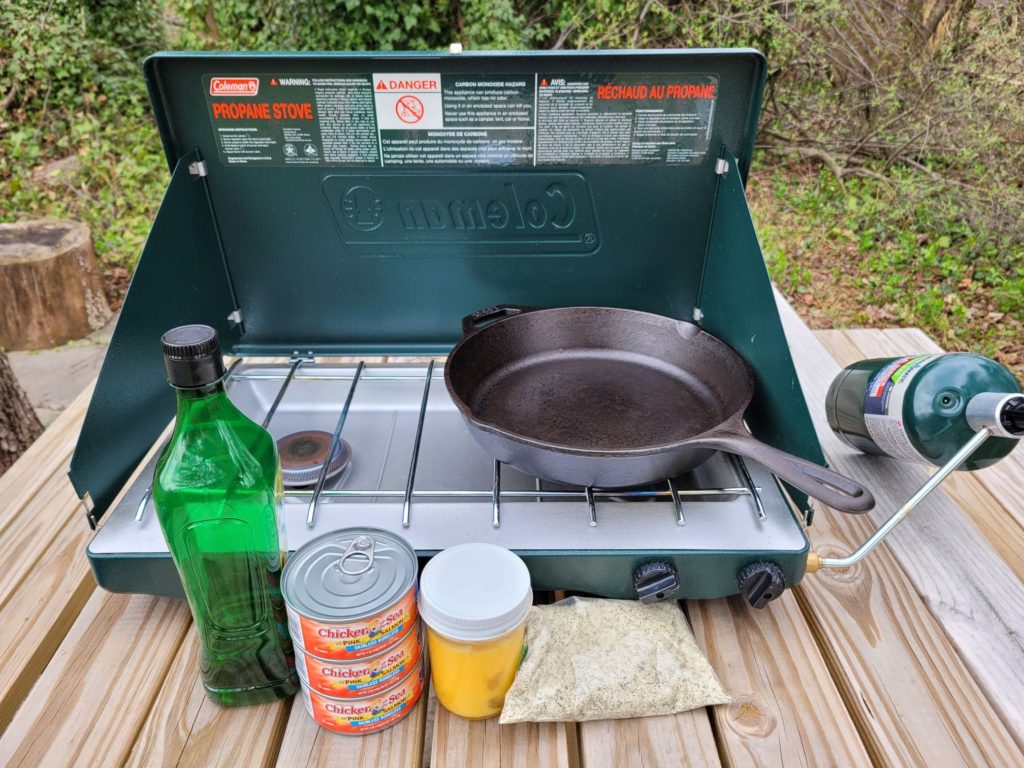
To Cook While Camping:
1. Drain canned salmon. Combine salmon, eggs, breadcrumbs (or almond flour), dill, garlic powder, and salt in a large bowl. Mix well with hands or a spoon to combine all ingredients.
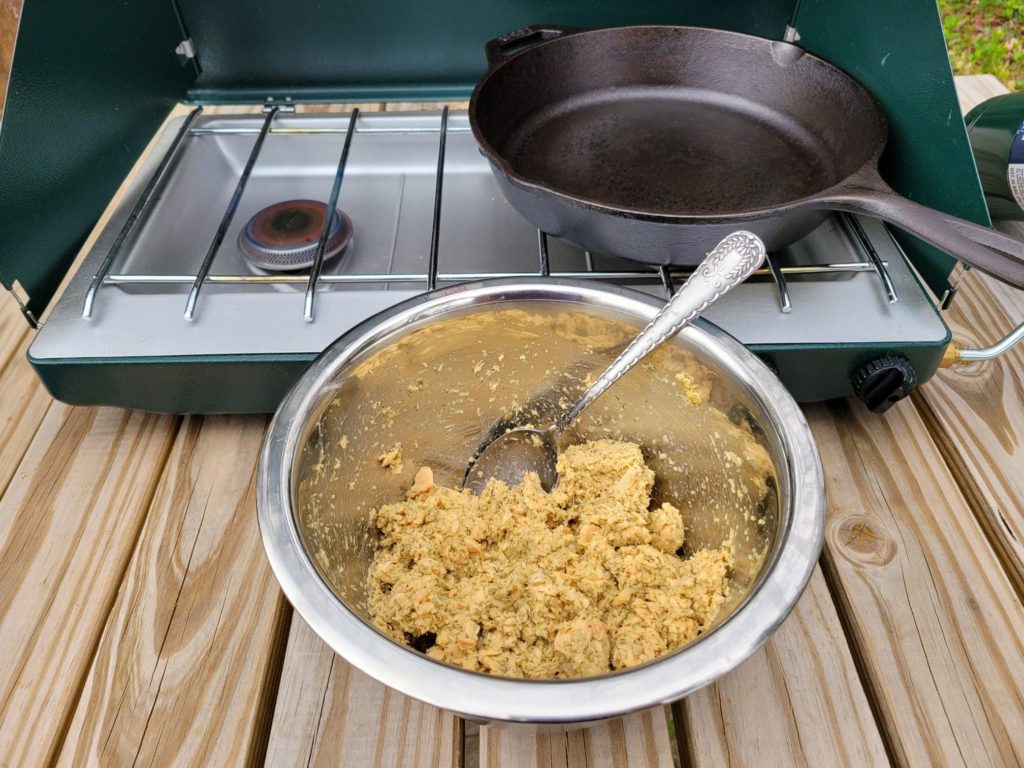
2. Light the camping stove, place the skillet on the burner, and pre-heat about 1/2 cup of oil in the skillet.
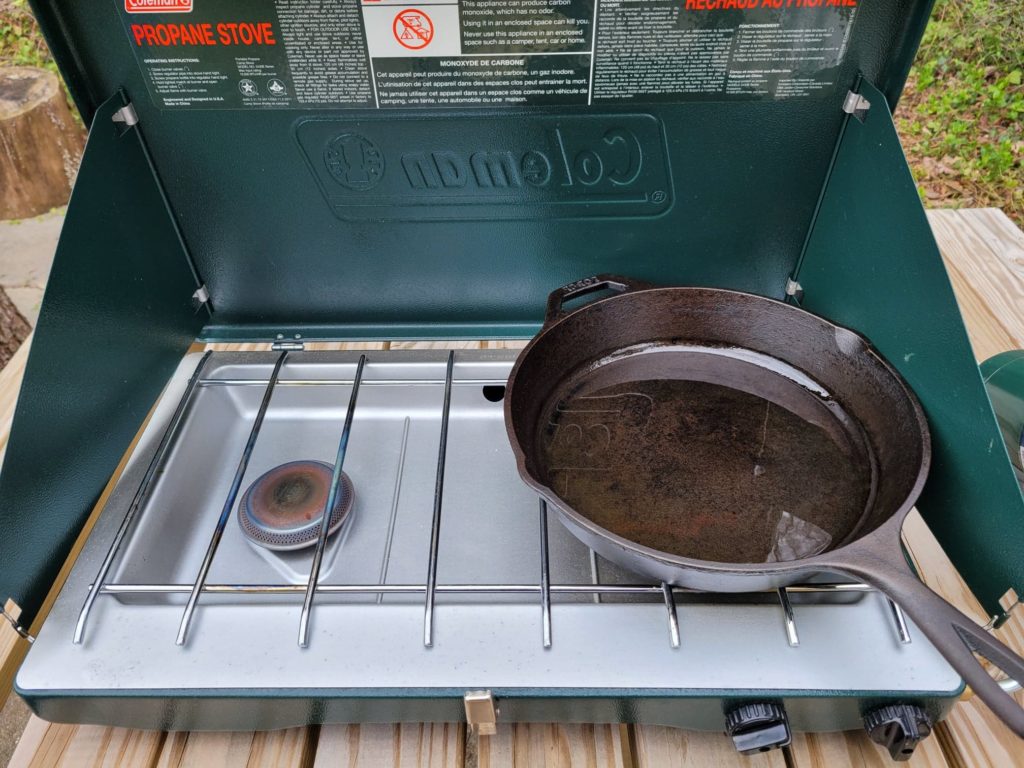
3. While the oil is heating, form 8 salmon patties.
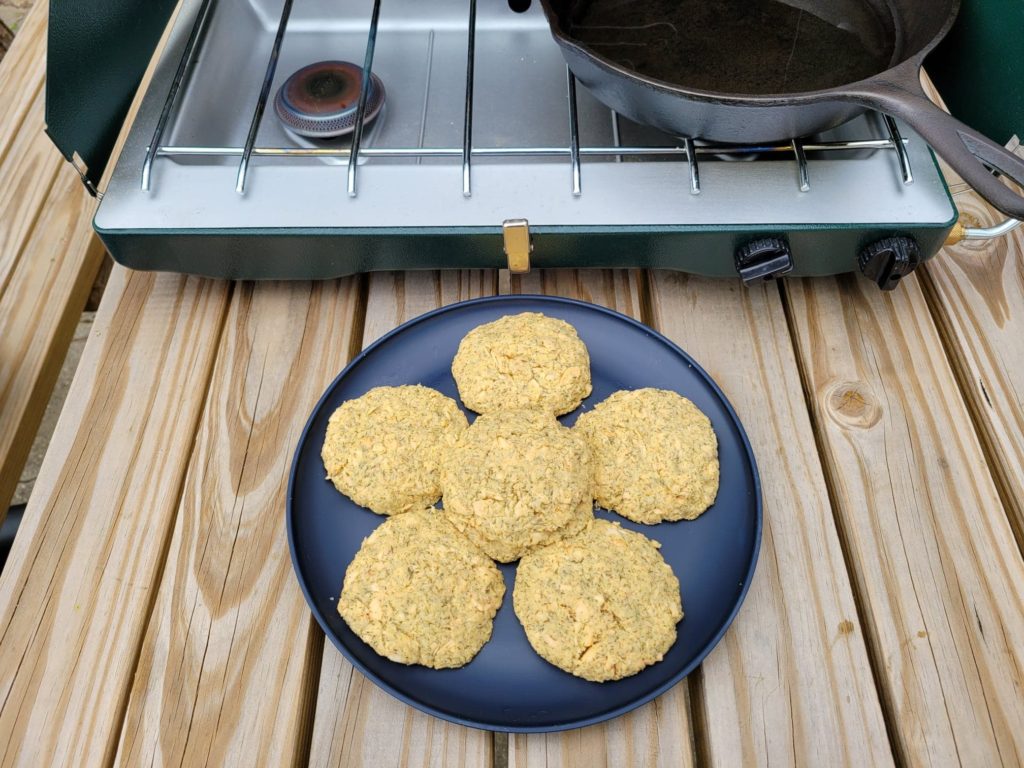
4. The oil is ready for cooking when it “shimmers,” or has small ripples in it. Place formed salmon patties in the pan and cook for 3-4 minutes on each side, or until golden brown. You may need to add more oil to the skillet between batches of salmon patties.
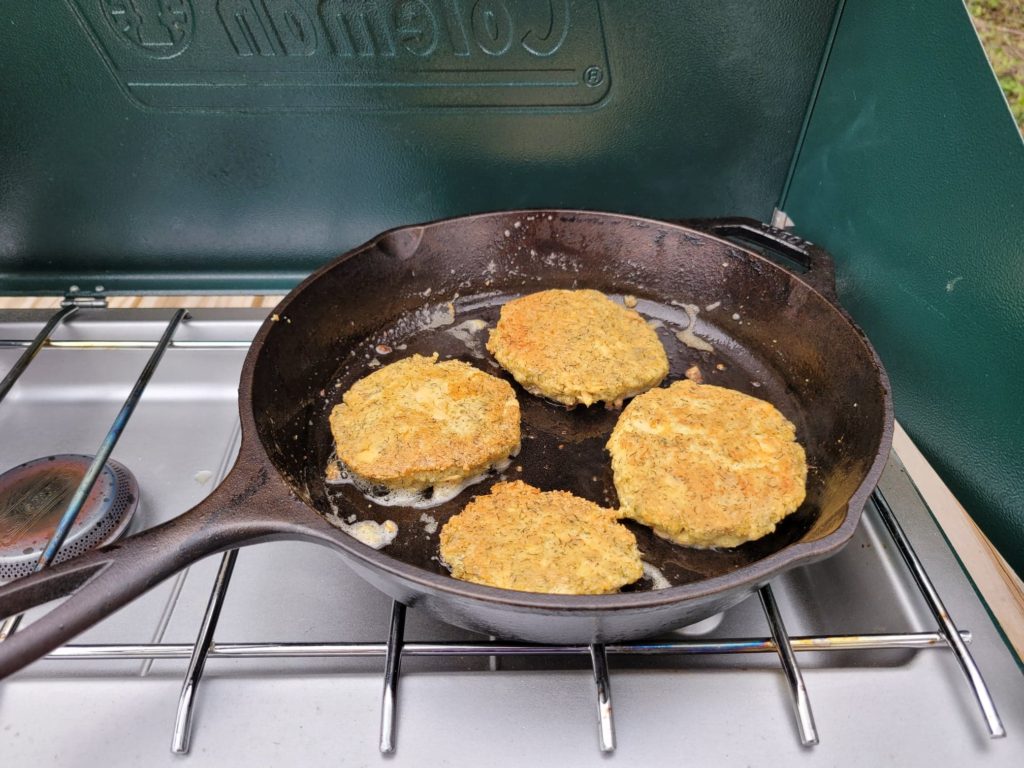
5. Drain patties on a plate lined with a paper towel.
6. Serve with tartar sauce, and enjoy!
Camping Stove Cooking Tips
Cooking on a camping stove is different than cooking on your indoor stovetop, even if you have a gas range. Follow these helpful tips to make cooking with a camping stove easier:
- Use LOW heat! Camping stoves tend to cook hot.
- Give cast iron cookware plenty of time to preheat over a low flame. You may also need to turn down the heat as you cook. Cast iron takes longer to heat up but then continues to get hotter as you cook and can quickly burn your food.
- The small diameter of a camping stove burner flame makes the heat very concentrated in the center of the skillet. Move the skillet around occasionally to distribute the heat more evenly.
Recipe Card
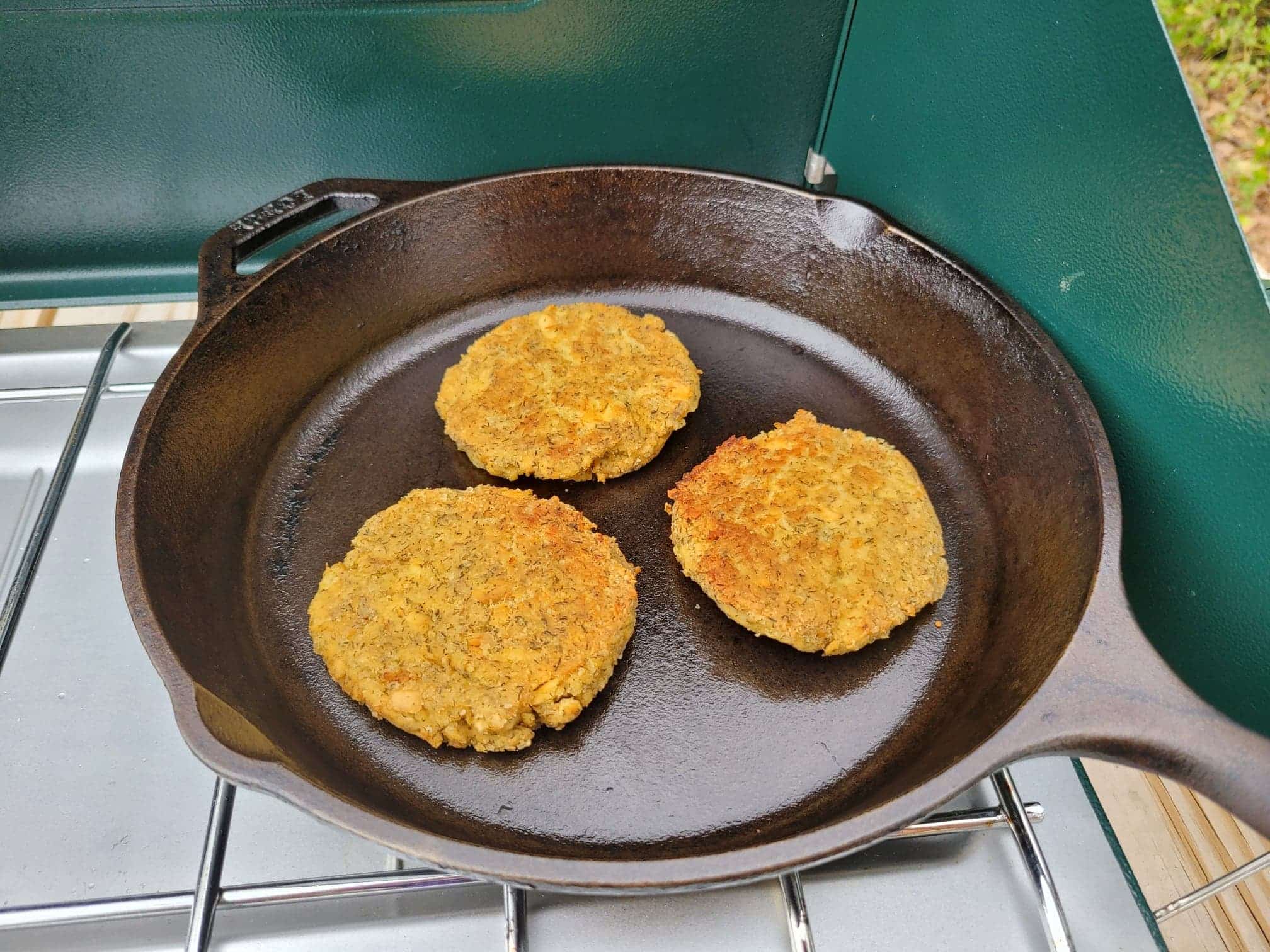
Camping Stove Salmon Patties {with Gluten-Free Option}
Ingredients
Equipment
Method
- Combine breadcrumbs (or almond flour), dill, garlic powder, and salt. Mix well and store in a ziplock bag.
- Crack 3 eggs, beat well, and store in a leak-proof jar or container in the refrigerator or cooler for up to three days.
- Drain canned salmon. Combine salmon, eggs, breadcrumbs (or almond flour), dill, garlic powder, and salt in a large bowl. Mix well with hands or a spoon to combine all ingredients.
- Light the camping stove, place the skillet on the burner, and pre-heat about 1/2 cup of oil in the skillet.
- While the oil is heating, form 8 salmon patties.
- The oil is ready for cooking when it "shimmers," or has small ripples in it. Place formed salmon patties in the pan and cook for 3-4 minutes on each side, or until golden brown. You may need to add more oil to the skillet between batches of salmon patties.
- Drain patties on a plate lined with a paper towel.
- Serve with tartar sauce, and enjoy!
Notes
- Use LOW heat! Camping stoves tend to cook hot.
- Give cast iron cookware plenty of time to preheat over a low flame. You may also need to turn down the heat as you cook. Cast iron takes longer to heat up but then continues to get hotter as you cook and can quickly burn your food.
- The small diameter of a camping stove burner flame makes the heat very concentrated in the center of the skillet. Move the skillet around occasionally to distribute the heat more evenly.
Tried this recipe?
Let us know how it was!Want more camp cooking inspiration? Be sure to check out the Recipes section of the blog for more delicious and easy camping recipes!
This post may contain affiliate links. This means if you click on a link and make a purchase, I will receive a small commission, at no cost to you, that makes it possible for me to keep the Campfires and Cast Iron site up and running. Please see our disclosure policy for details.
